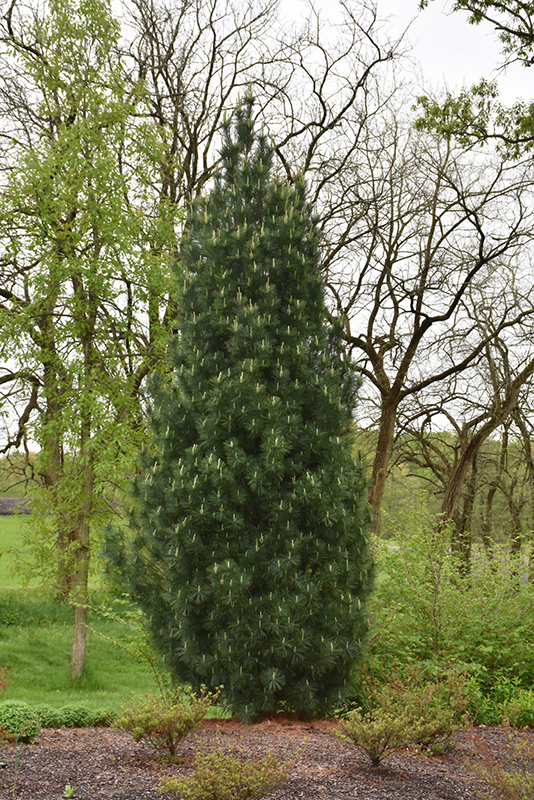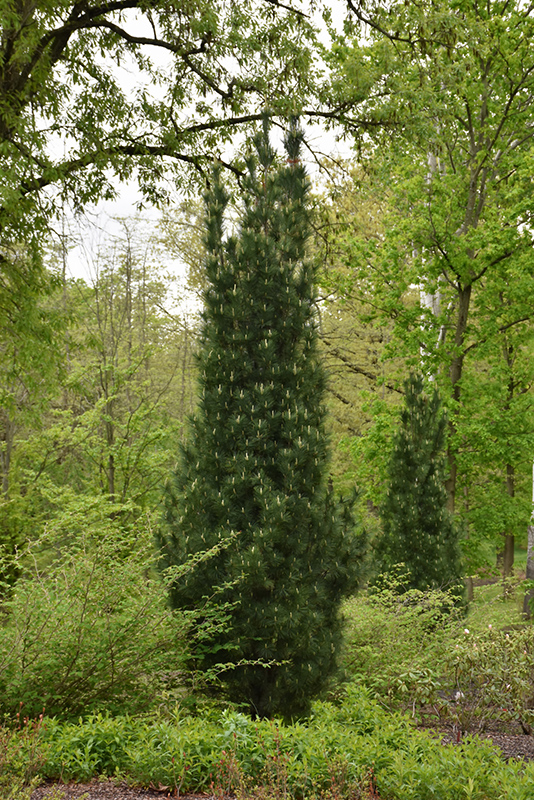>> Home
Stowe Pillar White Pine
Pinus strobus 'Stowe Pillar'
Height: 20 feet
Spread: 6 feet
Sunlight:
![]()
Hardiness Zone: 3b
Other Names: Eastern White Pine
Description:
A highly attractive, very narrow columnar tree, with silky smooth needles that may give a fuzzy appearance from a distance; can windburn in exposed locations, best grown in some shelter, but needs full sun; an excellent choice for smaller landscapes
Ornamental Features
Stowe Pillar White Pine is primarily valued in the landscape for its rigidly columnar form. It has bluish-green evergreen foliage which emerges creamy white in spring. The needles remain bluish-green throughout the winter. The furrowed gray bark adds an interesting dimension to the landscape.
Landscape Attributes
Stowe Pillar White Pine is an evergreen tree with a strong central leader and a narrowly upright and columnar growth habit. Its relatively fine texture sets it apart from other landscape plants with less refined foliage.
This tree will require occasional maintenance and upkeep. When pruning is necessary, it is recommended to only trim back the new growth of the current season, other than to remove any dieback. Gardeners should be aware of the following characteristic(s) that may warrant special consideration;
- Insects
- Disease
Stowe Pillar White Pine is recommended for the following landscape applications;
- Accent
- Vertical Accent
Planting & Growing
Stowe Pillar White Pine will grow to be about 20 feet tall at maturity, with a spread of 6 feet. It has a low canopy with a typical clearance of 1 foot from the ground, and is suitable for planting under power lines. It grows at a slow rate, and under ideal conditions can be expected to live to a ripe old age of 100 years or more; think of this as a heritage tree for future generations!
This tree should only be grown in full sunlight. It is very adaptable to both dry and moist growing conditions, but will not tolerate any standing water. It is not particular as to soil type, but has a definite preference for acidic soils, and is subject to chlorosis (yellowing) of the foliage in alkaline soils. It is quite intolerant of urban pollution, therefore inner city or urban streetside plantings are best avoided, and will benefit from being planted in a relatively sheltered location. This is a selection of a native North American species.

